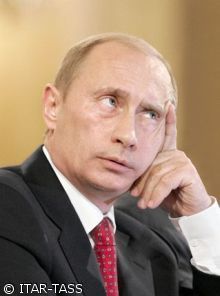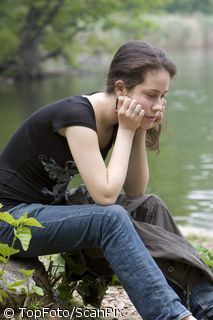European Union supporters in Latvia and Estonia expressed concern Thursday about a new survey pegging their countries as the most EU-skeptical in Europe
Published:
4 August 2003 y., Monday
European Union supporters in Latvia and Estonia expressed concern Thursday about a new survey pegging their countries as the most EU-skeptical in Europe—findings that come just two months before both Baltic states hold referendums on membership. A mere 32 percent of Estonians and 37 percent of Latvians agreed entry would be "a good thing," making them the most pessimistic of those questioned in the EU study released Wednesday. By contrast, 72 percent of Cypriots and 61 percent of Poles said joining would be good for them.
Latvia and Estonia will be the last of 10 EU candidate countries to put the issue of entry to a vote—and observers say there's now a chance that one or both nations could become the first to reject membership in Europe's most powerful multilateral club.
"People are afraid, they don't know what to believe and they're confused," said Pille-Mai Helemae, spokeswoman for the high-profile "Yes to the EU" group in Estonia. "It's going to be a hard fight. But in the end, I'm sure enough people will see more pros than cons to membership." Confusion about the EU was illustrated in the biannual Eurobarometer _ which questioned 1,000 people in each candidate nation in May—with 62 percent of Latvian and 71 percent of Estonian respondents saying they were either poorly informed about the accession process or not informed at all.
The Czech Republic, Hungary, Lithuania, Poland, Slovakia, Slovenia and Malta have already approved EU referendums, most by wide margins. Cyprus is leaving it's decision to lawmakers. If Estonia and Latvia pass their plebiscites on Sept. 14 and Sept. 20 respectively, they would join the EU together with the other candidates in 2004.
Virtually all top leaders in Estonia and Latvia have been pro-EU since the Baltic Sea nations regained independence—arguing that entry will raise their nations international stature, forge vital European trade links and boost living standards.
But official enthusiasm has never been matched outside the halls of power, with many Estonians and Latvians fearing a loss of sovereignty to the EU. Anti-EU groups compare what they say is an overly centralized EU with the U.S.S.R.; one of their symbols is an EU flag stamped with a Communist hammer and sickle.
If the results of the latest survey spooked EU supporters, they delighted opponents. "If you're a EU supporter, I believe the picture is even blacker," said Uno Silberg, who heads Estonia's "No to the EU Movement." "We're confident the referendum will fail."
Šaltinis:
balticsww.com
Copying, publishing, announcing any information from the News.lt portal without written permission of News.lt editorial office is prohibited.
The most popular articles
 Preparations for the traditional Mexican Day of the Dead get underway in Mexico City as residents erect alters and bake bread for the deceased.
more »
Preparations for the traditional Mexican Day of the Dead get underway in Mexico City as residents erect alters and bake bread for the deceased.
more »
 In three resolutions adopted in Strasbourg on Thursday, the European Parliament restates its solidarity with O. Orlov, a member of the Russian human rights organization Memorial and winner of the 2009 EP Sakharov Prize, who is now facing trial, denounces the imprisonment of Cambodian opposition leader S. Rainsy and calls on Zimbabwe's President R. Mugabe to put an end to the threat of mass forced evictions.
more »
In three resolutions adopted in Strasbourg on Thursday, the European Parliament restates its solidarity with O. Orlov, a member of the Russian human rights organization Memorial and winner of the 2009 EP Sakharov Prize, who is now facing trial, denounces the imprisonment of Cambodian opposition leader S. Rainsy and calls on Zimbabwe's President R. Mugabe to put an end to the threat of mass forced evictions.
more »
 Marrying diligent driver behaviour, quality road infrastructure and sound vehicles for safer roads across Europe.
more »
Marrying diligent driver behaviour, quality road infrastructure and sound vehicles for safer roads across Europe.
more »
 A group of journalism students in Moscow pose semi-naked for a steamy calendar wishing Russia's prime minister a happy birthday.
more »
A group of journalism students in Moscow pose semi-naked for a steamy calendar wishing Russia's prime minister a happy birthday.
more »
 In the EU27 in 2008, 20% of women and 32% of men aged 25 to 34 lived with at least one of their parents.
more »
In the EU27 in 2008, 20% of women and 32% of men aged 25 to 34 lived with at least one of their parents.
more »
 “Vertical” health funds targeting specific diseases such as AIDS, malaria or TB have achieved some success, but only at the cost of draining resources from basic “horizontal” health infrastructure such as clinics.
more »
“Vertical” health funds targeting specific diseases such as AIDS, malaria or TB have achieved some success, but only at the cost of draining resources from basic “horizontal” health infrastructure such as clinics.
more »
 This autumn, the 2010 European Job Days give jobseekers a chance to meet employers from all over Europe, and find out about working in other EU countries through seminars and workshops.
more »
This autumn, the 2010 European Job Days give jobseekers a chance to meet employers from all over Europe, and find out about working in other EU countries through seminars and workshops.
more »
 During his visit to New York, on 27 September at the City University of New York, Lithuania’s Minister of Foreign Affairs A. Ažubalis, opened a photography exhibition dedicated to the Lithuanian Jewish cultural heritage and conferred an award of Lithuania’s Ministry of Foreign Affairs on former Executive Director of the YIVO Institute for Jewish Research.
more »
During his visit to New York, on 27 September at the City University of New York, Lithuania’s Minister of Foreign Affairs A. Ažubalis, opened a photography exhibition dedicated to the Lithuanian Jewish cultural heritage and conferred an award of Lithuania’s Ministry of Foreign Affairs on former Executive Director of the YIVO Institute for Jewish Research.
more »
 The 26th of September marks the European Day of Languages. Perhaps the Knights of the Order of St John in the Middle Ages prided themselves about the fact that they had eight “langues” but Parliament does better with its daily “Headlines” on its website in 22 languages.
more »
The 26th of September marks the European Day of Languages. Perhaps the Knights of the Order of St John in the Middle Ages prided themselves about the fact that they had eight “langues” but Parliament does better with its daily “Headlines” on its website in 22 languages.
more »
 A proposed new plan focuses on closing the pay gap and opening up company boardrooms to more women. Tackling domestic violence is also a top priority.
more »
A proposed new plan focuses on closing the pay gap and opening up company boardrooms to more women. Tackling domestic violence is also a top priority.
more »